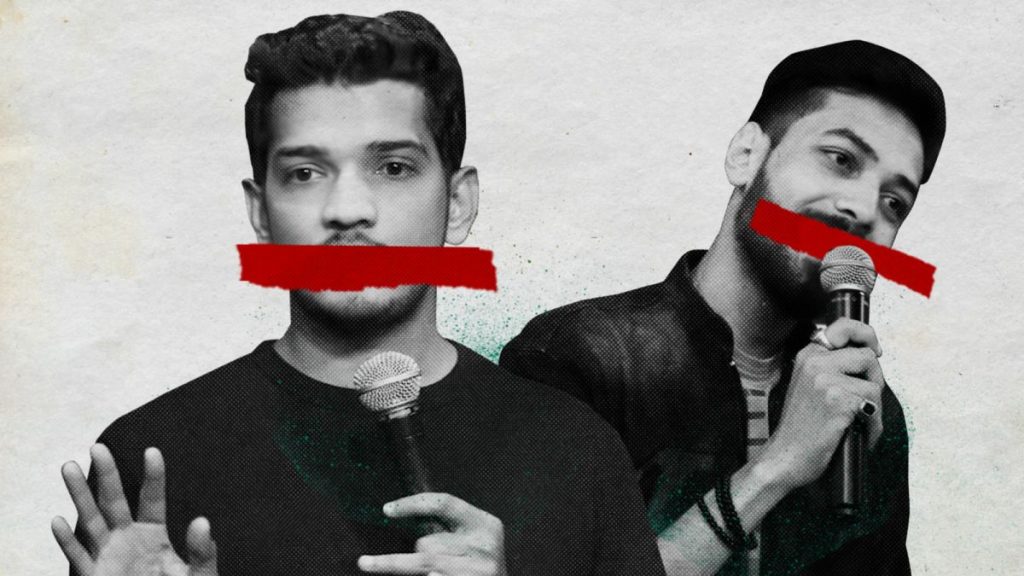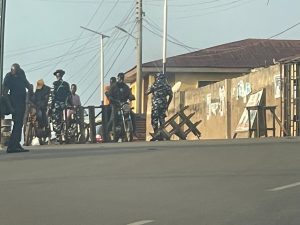In India, comedians can face arrest for making the wrong kind of jokes

“I didn’t understand how or why this happened to me,” said the 26-year-old stand-up comedian, who spent almost two months behind bars. “I couldn’t sleep or eat. I had anxiety attacks. My mind wouldn’t stop racing.” His alleged crime? Organizing and opening a show for a comic he says he had met just five minutes earlier — a Muslim comedian accused of telling jokes that insulted the Hindu faith. He and four others have pleaded not guilty over allegedly hurting and outraging religious sentiment during a comedy show last January. They are still awaiting trial for the charges and face three years in prison if convicted.While comedy can be polarizing all over the world, in India telling jokes about Hinduism or being associated with someone who insults the majority faith can be enough to prompt legal action. Experts say India’s colonial-era laws are being used by Prime Minister Narendra Modi’s Hindu-nationalist Bharatiya Janata Party (BJP) government to quash criticism and encourage self-censorship.At the same time, authorities have been accused of turning a blind eye to vitriolic comments from right-wing extremist groups who align with the BJP’s Hindu-nationalist agenda. Yadav is one of a growing list of journalists, activists, and entertainers who have become caught up in the country’s crackdown on freedom of expression.The problem is, the comedian — who is Hindu — says he didn’t even mention Hinduism that night. In January, Rohinton Nariman, a former judge of India’s Supreme Court, also hit out at how sedition laws are being used. He said young people, students and stand-up comedians were being booked for criticizing the government, while others were getting away with calling for genocide against Muslims.He was referring to comments made during a three-day event in the city of Haridwar in December when right-wing Hindus called on their followers to kill Muslims.”We find great reluctance from some of the authorities to book these people,” Nariman said. The futureSince his arrest last year, Yadav says his career — and life — has unraveled.Before the arrest, Yadav was able to make ends meet by performing. But after he was released on bail, he said no one wanted to book him as they feared violence from right-wing groups. Right-wing vigilantes harassed him on the streets, and he could only find work as a laborer, earning a daily wage of $2.60, he said. Yadav said he hoped that when he was freed from prison, people would see he had been treated unfairly. “But all my hope faded. I always saw the best in society … but I finally saw the real world.” Faruqui also took a brief hiatus from comedy after threats were made to his performance venues and audience. “Hate has won,” he said on Twitter in November. “The artist has lost.” He has since returned to the stage.
“Every law has been weaponized in India. They are being used against anyone who disagrees with the government.”Indira Jaising
The arrest of comedians is also affecting others in the industry.Some venues and organizers are canceling shows for fear of backlash and violence.The LVC Comedy Club in the southern state of Goa canceled Faruqui’s performance in November after a right-wing group threatened to destroy the venue. A spokesperson for the club, who did not want to be named for security reasons, said the comedy scene in India was becoming “more hostile.” “We are not political and don’t endorse everything comedians say,” the spokesperson said. “We are free speech advocates and support the right to joke about anything.” “(But) in a country that reports 77 rapes per day, I’m baffled that jokes are where people choose to be offended.” In November, Yadav decided to leave Indore to start his comedy career afresh in India’s capital Delhi. “It is ironic that comedy — the one thing that kept me alive and gave me hope — was the same thing that took everything from me,” Yadav said.”But I don’t blame comedy. I will never blame comedy. I blame the system, the government and the state of our society.” CNN’s Vedika Sud, Esha Mitra and Manveena Suri contributed reporting







